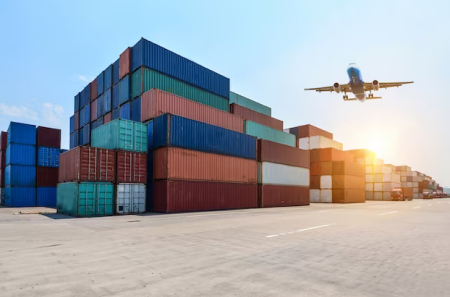Shipment management
2customs allows businesses to optimize, monitor and manage the shipment processes. Thanks to the user -friendly interface, companies can perform customs operations faster and more efficiently. In addition, electronically management of customs documents saves time and cost compared to paper -based transactions.
2customs also provides support for adapting to complex regulations in export and import processes. Following current legislation changes, providing access to users with access to current information and reduces compliance risks. In this way, companies minimize mistakes in customs procedures and get a competitive advantage.
The analytical and reporting features provided by 2customs help businesses monitor and improve their shipment performance


False documentation
Incorrect or incomplete documentation may lead to delays and even rejection of shipment. It is very important to make sure that all necessary documents such as commercial invoices, packaging lists, origin certificates and customs declarations are correct and are suitable for the arrangements of importer and exporting countries.
Documentation Management
- 2Customs automatizes the creation, storage and management of shipment documents.
- It creates accurate and compatible documents based on predefined templates and regulations.
- It prevents errors.
- You can also easily access shipment documents.

Customs compatibility problems
Failure to comply with customs regulations may cause delays, fines and even confiscation of goods.
Each country has its own rules and requirements, including customs duties, tariffs and restricted/prohibited products for imports and exports. It is necessary to understand and control customs regulations of both exporter and importer countries.
Customs compatibility
- 2customs works as integrated with customs databases.
- It offers real -time updates about customs regulations and requirements.
- You can verify the information against the special regulations of importer and exporting countries and do cross control.
- 2customs also ensures that customs declarations are submitted electronically and automate customs clearance processes.

Shipping delays
Due to bad weather conditions, port congestion, workers' strikes or logistics problems, there may be delays in shipment. The lack of communication with emergency planning and shipping providers can make these delays even worse.
You should be able to monitor shipping companies or logistics providers to manage your international shipments.
Shipment Tracking and Warnings
- 2customs can be integrated with tracking systems and provide real -time visibility about the status and position of posts.
- It sends automatic warnings and notifications to the relevant stakeholders and informs them about any delay or problem.
- In this way, you can manage your posts in a proactive way and make a timely decision.

Freight Costs
Shipping costs vary significantly depending on factors such as weight, volume, destination and transportation.
Accurate calculation and budgeting of these costs can lead to unexpected financial loads.
In addition, fluctuating fuel prices and exchange rates can further affect freight costs
Cost management
- 2customs provides algorithms and APIs to calculate the right shipping costs based on various factors such as weight, volume, destination and transportation mode.
- 2customs can also be integrated with financial systems to follow and manage shipping expenses.

Insurance
During transportation, mishaps may occur such as theft, damage or loss of property. Failure to document and report any incident properly can lead to financial losses.
Insurance management
- 2customs facilitates the management of insurance policies for shipments.
- Files and stores insurance details; It follows the collateral periods and automates the creation of insurance certificates.
- In case of a loss, it facilitates the demand process by documenting and reporting the required information.

Regulatory changes
Trade regulations, tariffs and import/export policies change over time. If you are not aware of these changes in time, incompatibilities arise. Cost saving opportunities can be missed. It is very important to monitor and adapt to developing trade regulations.
Compatibility and updates to the legislation
- 2customs monitores and helps you access changes in commercial arrangements, tariffs and import/export policies.
- Provides automatic updates and warnings regarding any changes in any legislation that may affect shipments. In this way, you will have information from the changes, you regulate your processes accordingly.

Weak communication and coordination
Effective communication and coordination between all parties (exporters, importers, transport companies, customs brokers, etc.) are vital. Lack of open communication can lead to misunderstandings, delays and errors. For a successful shipment management, regular and open communication lines with all stakeholders must be maintained.
Cooperation and Communication
- 2Customs serves as a central platform for cooperation and communication among all stakeholders involved in the shipment management.
- It facilitates safe messaging, document sharing and task management.
- Reduces the likelihood of misunderstanding and delay by providing a smooth and efficient communication.

